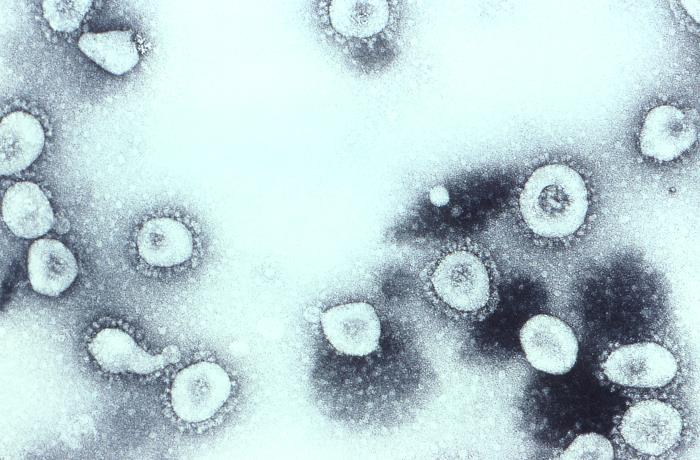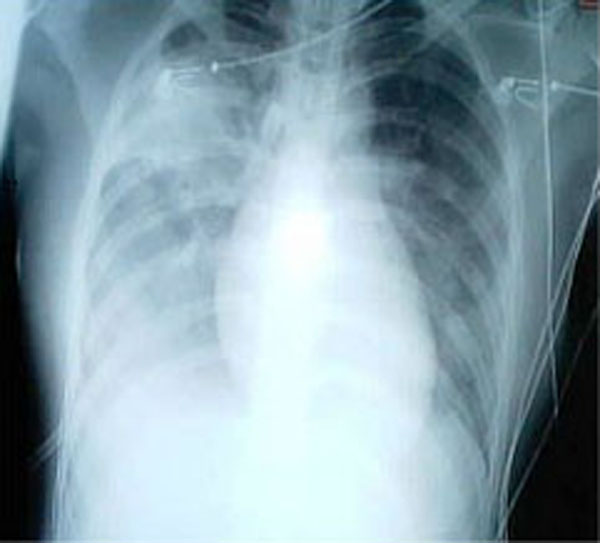|
Leo Poon
Leo Poon Lit-man () is the Head of the Division of Public Health Laboratory Science of the University of Hong Kong. In July 2020, Professor Malik Peiris stepped down from the position of co-director of the joint research pole between Hong Kong University and the Pasteur Institute (HKU-Pasteur), and Professor Leo Poon succeeded to this crucial WHO recognized Centre. He is one of the worlds' leading scientists investigating the emergence of viral diseases transferring from animals to humans, such as new strains of Influenza viruses and coronaviruses. Along with colleagues in his Division, he has made major contributions to the understanding of disease causes, diagnostic testing, and epidemiological control of these pandemic viral diseases. Personal life Poon was born in the then British colony of Hong Kong and is a citizen of the Special Administration Region of Hong Kong in China, where he has lived continuously, apart from the three years of post graduate study in Oxford in Englan ... [...More Info...] [...Related Items...] OR: [Wikipedia] [Google] [Baidu] |
University Of Hong Kong
The University of Hong Kong (HKU) (Chinese: 香港大學) is a public research university in Hong Kong. Founded in 1887 as the Hong Kong College of Medicine for Chinese, it is the oldest tertiary institution in Hong Kong. HKU was also the first university established by the British in East Asia. As of December 2022, HKU ranks 21st internationally and third in Asia by '' QS'', and 31st internationally and fourth in Asia by ''Times Higher Education''. It has been ranked as the most international university in the world as well as one of the most prestigious universities in Asia. Today, HKU has ten academic faculties with English as the main language of instruction. The University of Hong Kong was also the first team in the world to successfully isolate the coronavirus SARS-CoV, the causative agent of SARS. History Founding The origins of The University of Hong Kong can be traced back to the Hong Kong College of Medicine for Chinese founded in 1887 by Ho Kai later known a ... [...More Info...] [...Related Items...] OR: [Wikipedia] [Google] [Baidu] |
Influenza Viruses
''Orthomyxoviridae'' (from Greek language, Greek ὀρθός, ''orthós'' 'straight' + μύξα, ''mýxa'' 'mucus') is a family of negative-sense single-stranded RNA virus, negative-sense RNA viruses. It includes seven genus, genera: ''Influenza A virus, Alphainfluenzavirus'', ''Influenza B virus, Betainfluenzavirus'', ''Influenza C virus, Gammainfluenzavirus'', ''Influenza D virus, Deltainfluenzavirus'', ''Isavirus'', ''Thogotovirus'', and ''Quaranjavirus''. The first four genera contain viruses that cause influenza in birds (see also avian influenza) and mammals, including humans. Isaviruses infect salmon; the thogotoviruses are arboviruses, infecting vertebrates and invertebrates (such as ticks and mosquitoes). The Quaranjaviruses are also arboviruses, infecting vertebrates (birds) and invertebrates (arthropods). The four genera of Influenza virus that infect vertebrates, which are identified by antigenic differences in their nucleoprotein and matrix protein, are as follows: * ... [...More Info...] [...Related Items...] OR: [Wikipedia] [Google] [Baidu] |
Coronavirus
Coronaviruses are a group of related RNA viruses that cause diseases in mammals and birds. In humans and birds, they cause respiratory tract infections that can range from mild to lethal. Mild illnesses in humans include some cases of the common cold (which is also caused by other viruses, predominantly rhinoviruses), while more lethal varieties can cause SARS, MERS and COVID-19, which is causing the ongoing pandemic. In cows and pigs they cause diarrhea, while in mice they cause hepatitis and encephalomyelitis. Coronaviruses constitute the subfamily ''Orthocoronavirinae'', in the family ''Coronaviridae'', order '' Nidovirales'' and realm '' Riboviria''. They are enveloped viruses with a positive-sense single-stranded RNA genome and a nucleocapsid of helical symmetry. The genome size of coronaviruses ranges from approximately 26 to 32 kilobases, one of the largest among RNA viruses. They have characteristic club-shaped spikes that project from their surface, which in electr ... [...More Info...] [...Related Items...] OR: [Wikipedia] [Google] [Baidu] |
Pandemic
A pandemic () is an epidemic of an infectious disease that has spread across a large region, for instance multiple continents or worldwide, affecting a substantial number of individuals. A widespread endemic (epidemiology), endemic disease with a stable number of infected individuals is not a pandemic. Widespread endemic diseases with a stable number of infected individuals such as recurrences of seasonal influenza are generally excluded as they occur simultaneously in large regions of the globe rather than being spread worldwide. Throughout human history, there have been a number of pandemics of diseases such as smallpox. The most fatal pandemic in recorded history was the Black Death—also known as Plague (disease), The Plague—which killed an estimated 75–200 million people in the 14th century. The term had not been used then but was used for later epidemics, including the 1918 influenza pandemic—more commonly known as the Spanish flu. Current pandemics include Epide ... [...More Info...] [...Related Items...] OR: [Wikipedia] [Google] [Baidu] |
Oxford
Oxford () is a city in England. It is the county town and only city of Oxfordshire. In 2020, its population was estimated at 151,584. It is north-west of London, south-east of Birmingham and north-east of Bristol. The city is home to the University of Oxford, the oldest university in the English-speaking world; it has buildings in every style of English architecture since late Anglo-Saxon. Oxford's industries include motor manufacturing, education, publishing, information technology and science. History The history of Oxford in England dates back to its original settlement in the Saxon period. Originally of strategic significance due to its controlling location on the upper reaches of the River Thames at its junction with the River Cherwell, the town grew in national importance during the early Norman period, and in the late 12th century became home to the fledgling University of Oxford. The city was besieged during The Anarchy in 1142. The university rose to dom ... [...More Info...] [...Related Items...] OR: [Wikipedia] [Google] [Baidu] |
Sir William Dunn School Of Pathology
The Sir William Dunn School of Pathology is a department within the University of Oxford. Its research programme includes the cellular and molecular biology of pathogens, the immune response, cancer and cardiovascular disease. It teaches undergraduate and graduate courses in the medical sciences. The school is named for Sir William Dunn, 1st Baronet, of Lakenheath, whose will provided the initial funding. It is located towards the east end of South Parks Road, to the north of the city centre. __TOC__ History The first course of Pathology teaching in the University of Oxford was given in 1894 by Professor John Burdon Sanderson, Professor of Physiology, (Regius Professor of Medicine from 1895 to 1905), and Dr James Ritchie, who, in 1897, was appointed as the first University Lecturer in Pathology. The first Department of Pathology was opened in 1901 and functioned until 1927 when it was handed over to Pharmacology on completion of the new purpose-built Sir William Dunn School of ... [...More Info...] [...Related Items...] OR: [Wikipedia] [Google] [Baidu] |
Malik Peiris
Joseph Sriyal Malik Peiris ( Sinhala: ජෝසප් ශ්රියාල් මලික් පීරිස්, born 10 November 1949) is a Hong Kong-based British and Sri Lankan virologist, most notable for being the first person to isolate the SARS virus.He is the current Tam Wah-Ching Professor in Medical Science, and Chair Professor of Virology at the Division of Public Health Laboratory Sciences, School of Public Health, University of Hong Kong. He was a member of the Strategic Advisory Group of Experts on Immunization of the World Health Organization from 2009 to 2010. Early life and education Peiris was born on 10 November 1949 in Kandy, Sri Lanka. He attended school at St. Anthony's College, Kandy, and entered the University of Ceylon, Peradeniya in 1967, obtaining his MBBS in 1972. After a year with the National Health Department at the General Hospital in Matale, Peiris joined the Department of Microbiology at his alma mater, where Sarathnanda "Chubby" Arse ... [...More Info...] [...Related Items...] OR: [Wikipedia] [Google] [Baidu] |
Severe Acute Respiratory Syndrome
Severe acute respiratory syndrome (SARS) is a viral respiratory disease of zoonotic origin caused by the severe acute respiratory syndrome coronavirus (SARS-CoV or SARS-CoV-1), the first identified strain of the SARS coronavirus species, ''severe acute respiratory syndrome–related coronavirus'' (SARSr-CoV). The first known cases occurred in November 2002, and the syndrome caused the 2002–2004 SARS outbreak. In the 2010s, Chinese scientists traced the virus through the intermediary of Asian palm civets to cave-dwelling horseshoe bats in Xiyang Yi Ethnic Township, Yunnan.The locality was referred to be "a cave in Kunming" in earlier sources because the Xiyang Yi Ethnic Township is administratively part of Kunming, though 70 km apart. Xiyang was identified on * For an earlier interview of the researchers about the locality of the caves, see: SARS was a relatively rare disease; at the end of the epidemic in June 2003, the incidence was 8,469 cases with a case fatality rate (C ... [...More Info...] [...Related Items...] OR: [Wikipedia] [Google] [Baidu] |
Living People
Related categories * :Year of birth missing (living people) / :Year of birth unknown * :Date of birth missing (living people) / :Date of birth unknown * :Place of birth missing (living people) / :Place of birth unknown * :Year of death missing / :Year of death unknown * :Date of death missing / :Date of death unknown * :Place of death missing / :Place of death unknown * :Missing middle or first names See also * :Dead people * :Template:L, which generates this category or death years, and birth year and sort keys. : {{DEFAULTSORT:Living people 21st-century people People by status ... [...More Info...] [...Related Items...] OR: [Wikipedia] [Google] [Baidu] |
Hong Kong Scientists
Hong may refer to: Places *Høng, a town in Denmark *Hong Kong, a city and a special administrative region in China *Hong, Nigeria *Hong River in China and Vietnam *Lake Hong in China Surnames *Hong (Chinese name) *Hong (Korean name) Organizations *Hong (business), general term for a 19th–20th century trading company based in Hong Kong, Macau or Canton *Hongmen (洪門), a Chinese fraternal organization Creatures *Hamsa (bird), a mythical bird also known was hong *Hong (rainbow-dragon) ''Hong'' or ''jiang'' () is a two-headed dragon in Chinese mythology, comparable with rainbow serpent legends in various cultures and mythologies. Chinese "rainbow" names Chinese has three "rainbow" words, regular ''hong'' , literary ''didong'' , ..., a two-headed dragon in Chinese mythology * ''Hong'' (genus), a genus of ladybird {{disambiguation ... [...More Info...] [...Related Items...] OR: [Wikipedia] [Google] [Baidu] |



.jpg)


